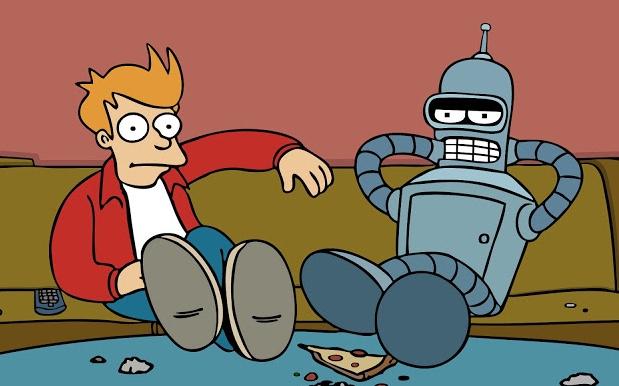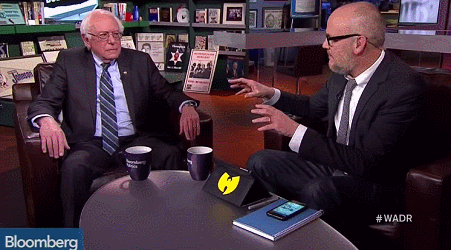
Yesterday, Switzerland overwhelmingly rejected a referendum which would have implemented what is called a ‘universal basic income’ in the country. 78% of voters said no to the proposal, which would have entitled everyone legally residing in Switzerland 2,500SFr per month – which is about AUD$3,500.
A triple grand for free each month? Depending on where you sit on the political spectrum, that might sound like either a glorious socialist dream, or a horrifying Marxist hellworld. But universal basic income (UBI for short) is actually a widely discussed policy among economists who are trying to work out how the heck the world is gonna cope when automation makes many of the jobs we now take for granted completely obsolete.
Though the citizens of Switzerland rejected the notion after being urged to do so by all the country’s major political parties, it’s still significant – it’s the first time it has actually been formally considered by an entire country.
The Australian media has started to ponder it as a result: Peter Hartcher wrote an op-ed about UBI in the Sydney Morning Herald. It was a pretty lukewarm take, to be honest – Hartcher reckons the real solution is ‘innovation and entrepreneurship’ which isn’t actually a cogent answer to anything and doesn’t address the looming structural issues with the global market economy.
So it’s worth asking the question: what the hell is a universal basic income, and should you love it or hate it?
I’ll bite. What’s the deal?
The basic idea behind a universal basic income is simple: the digital economy and automation mean that many of the jobs that currently exist in our society are going to be replaced, and we have to have a way of providing for people when their career path is abruptly terminated by a cool and efficient machine named The Job-Bot 3000.

pictured: robot stealing your sick door-opening gig
We know Scott Morrison and the Coalition team are big on saying that ‘the best welfare is a job’, but will that slogan even make sense when there are substantially less jobs than there are people? We’re already teetering on that precipice.
Many advocates reckon UBI is the solution here. Everyone gets a baseline income, paid by the government. If you think you can live off that income, more power to you. Go do what you’re passionate about. Write a book, focus on your art, spend all day watching Everybody Loves Raymond and Frasier reruns. The world is yours. Happy bloody days.
If you want to earn more than the stipulated basic income, you can get a job. You still get the UBI, but you can earn whatever you like on top. The idea here is that the people who don’t want to work can do so without being saddled with the guilt that is foist upon them in the current welfare system, and if you want to make fat stacks, the opportunity is still there.
Therefore, those who are comfortable with the basic income aren’t putting stress on the job market either. We’ll all acknowledge that the economy wouldn’t be able to provide those jobs anyway, and everyone goes on their merry way.
What other possible benefits are there that I’m not thinking about?
I mentioned hobbies and art above. It’s pretty well established that the blunt force, best way to improve the arts and cultural sector is to make sure that the basic human needs of artists – food, water, shelter, etc – are looked after. Pouring tax bucks into local theatre groups is one thing, but making sure that artists don’t need to spend most of their life at a desk means they’ll have more time and resources to, y’know, do art.

If you’re the kinda person that loves yourself a bit of entrepreneurship and startups and that whole business, a UBI might be your steez too. Theoretically, a basic income would strip some of the risk out of the idea of quitting your job and starting up an online business where you mail beautiful origami dicks to people for $5. It’s still not a good business idea, though.
Here’s one for the feminists, too: a UBI might go some way toward addressing the gender pay gap too. It’d never fix things entirely, but its an equalising force worth pondering.
That sounds like socialism to me, mate. I didn’t stick a photo of Stalin to this dartboard for nothing. Get outta here, ya commie pig.

gotcha dickhead
Funnily enough, there are a growing number of conservatives and right-wing types who are onboard with UBI in some form.
They’re responsible for popularising it too, in many ways. Milton Friedman, one of the most influential economists of all time and as outrageously capitalist as a bloke could be, proposed a somewhat similar scheme, which he called ‘negative income tax’.
It didn’t involve the unconditional provision of baseline income to all citizens per se, but the idea was that people who earn under a certain threshold would be owed money by the government rather than the other way around – hence ‘negative income tax’.
Friedman was no fan of tax and welfare. Honestly, he would have preferred that both be completely abolished, in true libertarian form. But he thought that a negative income tax was a much better and fairer way of sorting it out than the existing welfare bureaucracy.
Forbes – a publication not known for their leftie sympathies, to put it lightly – published an op ed by Tim Worstall bemoaning the failure of the Swiss referendum, and calling for a basic income to have its day. His reasons are different – he doesn’t think automation is an issue, and just hates welfare generally – but he sees it as a better way of doing things than what currently exists.
Maybe it’s good. Why might it suck?
There are some standard arguments that have some definite credibility.
First, motivation. Obviously. If you don’t have to work, then some will elect not to. Probably a helluva lot less than some people think – but it will happen. This probably won’t hurt fat stacks industries like law, full of people who want to make a heap of money for whatever reason. But it could hit traditionally working class industries like manufacturing.
Also, let’s say that someone spends their UBI on drugs, because they have an addiction. Do we say “Sorry buddy, ya blew it” and let them starve? Ideally, we wouldn’t. We’d hope that there’s still funding for the kind of services that would ensure that person gets the help they need. If a UBI were implemented and replaced welfare and social spending in a conservative model, then maybe that wouldn’t be the case.
Maybe this is obvious, but a basic income could be expensive. At the very least – as in the Swiss proposal – it would require a tax hike to make it even slightly feasible. In a world where everyone demands tax cuts and the wealthy are allergic to paying more than they do, the question of budgeting would likely be a big roadblock.
Alright, I get it. Say I’m a leftie through and through. This shit sounds wild as hell and I’m onboard. Any reason I should oppose it as a progressive?
Yeah, very possibly.
An article in the socialist publication Jacobin argued that the growing conservative support for UBI is a good indication that it won’t necessarily be the glorious utopia you might imagine it could be. There’s always a catch, never a free lunch, etc etc.
Though it could be a wonderful way to encourage efficiency and minimise work, argues Shannon Ikebe, it could be very bad if poorly (or maliciously) designed. If it means the end of conventional welfare as we know it, then future conservative governments could cut it back or change the income received at a later date, leaving the poor without a whole lot of options.
It’s also not hard to imagine the Scott Morrison way of doing things like adding work requirements, or maybe forcing UBI recipients to partake in some of those unpaid internships we’ve heard so much about.
And besides, if the UBI is set at below a liveable wage – which some think it should be, to encourage work – it doesn’t do a whole lot to address the problem we mentioned before that many people agree exists: a potentially shrinking job market.
I’m confused as hell, but thanks.
So is everybody else, buddy. But the concept of a universal basic income is a new way of thinking about things in a rapidly changing world, and it’s worth thinking about how we’re gonna orient our economies and look after our people. Because hey: when shit changes, we gotta change with it.
Photo: Futurama.



